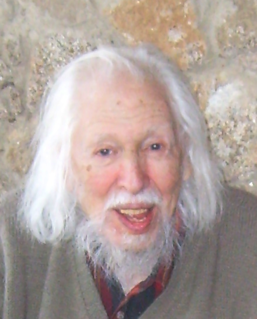A Quote by Gad Saad
One of the ways by which astrology tricks human brains is via the Barnum effect, which is the process by which individuals take general and vague statements that could apply to anyone and anywhere, and find personal meaning in them.
Related Quotes
The process of philosophizing, to my mind, consists mainly in passing from those obvious, vague, ambiguous things, that we feel quite sure of, to something precise, clear, definite, which by reflection and analysis we find is involved in the vague thing that we start from, and is, so to speak, the real truth of which that vague thing is a sort of shadow.
The need for mythic statements is satisfied when we frame a view of the world which adequately explains the meaning of human existence in the cosmos, a view which springs from our psychic wholeness, from the co-operation between conscious and unconscious. Meaninglessness inhibits fullness of life and is therefore equivalent to illness. Meaning makes a great many things endurable - perhaps everything.
Even personal tastes are learned, in the matrix of a culture or a subculture in which we grow up, by very much the same kind of process by which we learn our common values. Purely personal tastes, indeed, can only survive in a culture which tolerates them, that is, which has a common value that private tastes of certain kinds should be allowed.
The unity of the human race, as envisaged by Bahá'u'lláh, implies the establishment of a world commonwealth in which all nations, races, creeds and classes are closely and permanently united, and in which the autonomy of its state members and the personal freedom and initiative of the individuals that compose them are definitely and completely safeguarded.
Our initial sensory data are always "first derivatives," statements about differences which exist among external objects or statements about changes which occur either in them or in our relationship to them. Objects and circumstances which remain absolutely constant relative to the observer, unchanged either by his own movement or by external events, are in general difficult and perhaps always impossible to perceive. What we perceive easily is difference and change and difference is a relationship.
Correct is to recognize what diseases are and whence they come; which are long and which are short; which are mortal and which are not; which are in the process of changing into others; which are increasing and which are diminishing; which are major and which are minor; to treat the diseases that can be treated, but to recognize the ones that cannot be, and to know why they cannot be; by treating patients with the former, to give them the benefit of treatment as far as it is possible.
The images which the [press] photographer has filtered from reality, whether particular events or the anguish of human reactions to them, already bear a stamp of authenticity which the photographer is powerless to alter by one jot or tittle; the meaning of the objects, by a process of purification, itself becomes the theme of the work.
Astrology is of particular interest to the psychologist, since it contains a sort of psychological experience which we call projected - this means that we find the psychological facts as it were in the constellations. This originally gave rise to the idea that these factors derive from the stars, whereas they are merely in a relation of synchronicity with them. I admit that this is a very curious fact which throws a peculiar light on the structure of the human mind.
Your photography is a record of your living - for anyone who really sees. You may see and be affected by other people's ways, you may even use them to find your own, but you will have eventually to free yourself of them. That is what Nietzche meant when he said, 'I have just read Schopenhauer, now I have to get rid of him.' He knew how insidious other people's ways could be, particularly those which have the forcefulness of profound experience, if you let them get between you and your own personal vision.
Christianity has ever been the enemy of human love; it has forever cursed and expelled and crucified the one passion which sweetens and smiles on human life, which makes the desert blossom as the rose, and which glorifies the common things and common ways of earth. It made of this, the angel of life, a shape of sin and darkness ... Even in the unions which it reluctantly permitted, it degraded and dwarfed the passion which it could not entirely exclude, and permitted it coarsely to exist for the mere necessity of procreation.



































